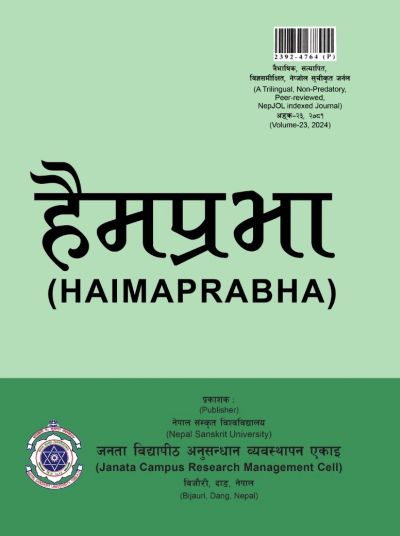A Systematic Review of Teachers’ Perceptions and Beliefs Towards Gender Issues in Mathematics Learning
DOI:
https://doi.org/10.3126/haimaprabha.v23i1.66735Keywords:
belief, equity, gendering, performance, teachers’ perceptionsAbstract
There is still very little concern especially, regarding teacher's perceptions towards gender differences and their influences in mathematics learning. Teachers are prominent factors in mathematics learning and the importance of perceptions and beliefs of teachers towards gendering, their long-term influences and their differential impacts on males and females cannot be ignored. The purpose of this study is to synthesize existing researches related to teachers' perceptions and beliefs towards gender in learning Mathematics. A qualitative systematic review of related literature of teachers’ perceptions and beliefs towards gendering in learning mathematics is conducted. The qualitative review has followed the PRISMA protocol that was outlined by Moher et al. Total of 10 articles (six quantitative, four qualitative including a systematic literature review) are chosen for inclusion for this study. Thematic analysis suggested by Braun and Clarke is used as a method to draw findings and conclusions by generating themes within the information. The thematic findings of the study are associated with the major themes that are related to teachers' perceptions and beliefs towards gender in mathematics learning. The findings are based on the major themes: participation and motivation; behaviors and performance; abilities and ICT use; teaching methods, curriculum and practices and career choices. Hence, the importance of exploring teachers' perceptions and beliefs towards gender issues in mathematics learning has been acknowledged in this study. The study has claimed that gender parity can be achieved when mathematics teachers believe that students (both boys and girls) are valuable potentials and they praise them for their effort and achievements to develop confidentiality in mathematical thinking and problem-solving abilities. Recommendations to the concerned stakeholders to enhance equity in mathematics learning are proposed in this study.
Downloads
Downloads
Published
How to Cite
Issue
Section
License

This work is licensed under a Creative Commons Attribution 4.0 International License.
© Nepal Sanskrit University, Janata Campus, RMC, Bijauri Dang, Nepal

